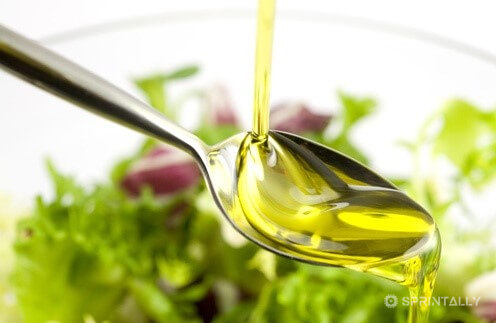Rules for the use of vegetable and essential oils

Essential oils: Proponents of trendy diets from time to time declare vegetable oils are harmful. At the same time, any doctor or nutritionist will confirm: oil is not as harmful as its absence.
Oil is necessary not only for good nutrition but also for a good appearance. Vegetable oils that people use as food contain mono- and polyunsaturated acids, fat-soluble vitamin E. They allow you to absorb other vitamins A and D. Essential fatty acids Omega-3, Omega-6 and Omega-9, which enter the body only with vegetable oil or sea fish, increase immunity, strengthen the cardiovascular system, reduce the risk of diabetes, normalize blood pressure, remove toxins and prolong youth.
What is transport oil?
Thanks to minerals and vitamins, vegetable oils are used in treatment and cosmetology. The remedy is prepared on the basis of vegetable, easily absorbed oil. Essential oils are added to it. From here and other names of vegetable oils: transport, basis, basic, functional. Base oils include sunflower, olive, apricot seed oil, wheat germ oil, grape seed oil, sweet almond oil, macadamia oil, jojoba, St. John's wort, cocoa, hemp, pumpkin, cedar, sesame, shea, rosehip and many others. The consistency of vegetable oils are divided into solid (batter) and liquid. By their effects, they can be divided into lungs (quickly absorbed), restoring the lipid barrier, protecting from frost or from the sun. All oils contain important micro and macronutrients and biologically active substances, accelerate cellular metabolism, improve skin hydration, promote collagen formation.
When embarking on therapeutic or health procedures using natural oils, it is important to follow the rules of oil storage. Otherwise, it may lose its healing properties.

Shelf life
The oil must be fresh: and that which is eaten, and that which is used externally for cosmetic purposes. Mixture, ointment or tincture should be prepared in small portions, stored in the refrigerator. tightly closed lid.
Taste and smell
Trust your feelings. If you do not like the taste of oil or its smell, it is better not to use it. There is no soul to the product - find a replacement for it.
Peace
Undergoing a course of treatment with natural oils, try to wear clothes made from natural fabrics, be more open air, less irritated. Adjust yourself to a state of rest, susceptibility, relaxation, then the effect of the treatment will be noticeable.
Storage
Vegetable oils are not recommended to be stored in plastic containers. Sometimes in shops, they sell oil in a plastic bottle. In this case, you need to pour the oil into a ceramic or glass bottle at home, preferably from the dark glass. Oil stored in a brightly lit place loses its beneficial properties and can even become dangerous.
Dosage
Essential oils do not tolerate improvisation and measurements "by eye". If the recipe says that you need to add two drops of oil, it means just two - not about, not more and not less. Always accurately measure the required amount and follow the dosage.
Allergy
If you have never used any kind of oil before, you do not know how you will react to it, start using it with the minimum dose. This way you can eliminate or identify an allergic reaction. Sensitivity to fragrances in people is different. Perhaps the minimum dose would be enough for you. To identify an allergy, apply a drop of oil on the elbow bend. If there is a burning or redness, it is better to refrain from using this oil.

Drink
Vegetable oils can only be washed down with warm or hot water. During the course of treatment, do not drink carbonated beverages, including carbonated water.
Food
If you take the oil just before a meal, the food should be warm or hot.
Heating
Do not heat the oil in an aluminum pan. You can only heat the oil in a water bath.
Purity
Using oils externally, remember that they easily stain clothes and wash heavily. Dripping oil on your clothes, immediately sprinkle the stain with table salt.
Bath
Using essential oil for therapeutic water treatments, keep in mind that the essential oil does not dissolve in water. If you just drip the oil into the water, it will float on the surface and can burn the skin. Dissolve the oil in a neutral emulsifier. You can use attorney salt, cream or honey. Put a few drops of essential oil in honey or cream, stir and then dissolve in water. The first time you take a bath for no longer than five minutes, then you can gradually increase the time.
Contraindications
Aromatherapy is contraindicated for pregnant women, people with heart or respiratory problems. They can use essential oils only after consulting a doctor.





